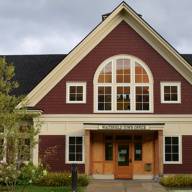By Peter Oliver
Performative stunts and partisan obstructionism seem to be what current Congressional Republicans see as their primary purpose as national leaders. Every once in a while, however, they pretend to behave like adults and stray, almost by accident, into the area of actual policymaking. When they do, they invariably come out of the starting blocks condemning anything that might hint of socialism. "Socialism" is a dirty word that resonates in conservative circles; socialism is an evil evoking images of Soviet repression, soullessly gray landscapes, and government quashing the God-given freedoms of liberty-loving Americans.
Republicans use "socialism" as a semantic receptacle in which to dump virtually all things proposed by Democrats. The socialist Dems, they say, are advocates of a centralized government that squeezes the ambition, creativity, and personal accountability out of the traditional way of American life. Instead, Republicans stand righteously for freedom, free enterprise, and red-white-and-blue capitalism.
In reality, socialism has long played an integral role in the effective workings of the federal government, even if conservatives pretend it isn't so. Socialism continues to exist in scattered pieces throughout the government's regular order of business. Socialism or no socialism is not the issue. The real question for politicians of all party affiliations: How much socialism is good for the country?
First, the matter of definition: a fully socialist society would do away, as entirely as possible, with free enterprise and capitalist initiative. The government would take charge of virtually all aspects of the economy and daily life -- manufacturing, media, housing, education, food production, etc. Citizens would finance the system through taxes, conceivably very high taxes.
Obviously, that is not a description of the current state of affairs in this country, nor is it a desirable objective that most Democrats are pursuing. It's true that Democrats are typically more enthusiastic than Republicans about endorsing a greater role for federal government in national affairs, and they typically favor a more equitable distribution of national wealth. But they put on the brakes well short of a full commitment to socialism. Conversely, while Republicans obsessively bang their anti-socialist drums, they wouldn't dare insist on the elimination of such socialistic programs as Social Security, Medicare, or the Veterans Administration.
The creation of a mostly toll-free interstate highway system (conceived in a Republican administration) was a socialist project; without it, transportation and commerce in the U.S. would be sclerotic chaos. State universities, some considered to be among the country's best, are at least partially funded, socialist-style, with public money. Even the military, fully financed by tax dollars, could be considered a socialist entity. And so on.
While a fundamental pillar of conservative politics is a belief in lower taxes and smaller government, Republicans are just calling for a reduction in socialism, not an elimination of it. Yet to concede that socialism has long been a productive part of the workings of the federal government would be apostasy in conservative circles. (On the other side of the coin, liberals who rail against capitalist greed are rarely willing to concede that a profit motive has long been a powerful stimulant in generating valuable innovation and progress.)
Socialism, as an applied political philosophy in the U.S., got its first real kick in the pants in the late 19th century, driven primarily by a pro-labor, anti-capitalist sentiment. Socialist political parties in the U.S. were formed in the early 20th century and gained momentum with the rise of Communism in Russia after the revolution of 1917. But those parties sputtered; the great majority of Americans were unenthusiastic about -- or suspicious of -- the Russian model. While socialist parties lost steam, however, socialism itself boomed in the 1930s. Franklin Roosevelt, as President, prescribed big-government, socialistic programs like the Civilian Conservation Corps, the Social Security Administration, and the Works Progress Administration as antidotes to the Great Depression. Call it socialist or call it something else (which the dwindling number of card-carrying Socialists did, considering the New Deal too capitalistic). But the idea of big government with big programs coming to the rescue of economically beleaguered Americans proved widely appealing.
Given the current gridlock in Congress, a renaissance of New-Deal-like programs is inconceivable, but socialism remains alive and well nonetheless, sometimes hand-in-glove with capitalism, in theory socialism's philosophical antithesis. And socialism and capitalism can actually work synergistically for the common good. A recent example is Operation Warp Speed, the remarkably swift development, production, and distribution of COVID-19 vaccines.
To make it happen, the scientific expertise of private pharmaceutical companies was essential, but as capitalistic entities, the big-pharm companies needed revenues to roll in. The government jumpstarted the financial incentive by invested billions of dollars in private companies, then activated its vast institutional and regulatory network to expedite the journey of vaccines from lab experimentation into the arms of Americans in a matter of months. It couldn't have happened without socialism, and it couldn't have happened without capitalism.
These days, Bernie Sanders is all but on an island by himself in identifying as a socialist, but he does so without a party. And he is a socialist only because he labels himself as such. On ballots he is listed as a Democratic candidate and he caucuses in the Senate with Democrats. In other words, the prospects for socialism as a formal political movement in this country are hopeless. However, socialism, sometimes teaming with capitalism, remains an effective mechanism in the way government operates. Even Republicans would have to agree with that, although they would never admit it.
Oliver lives in Warren.












